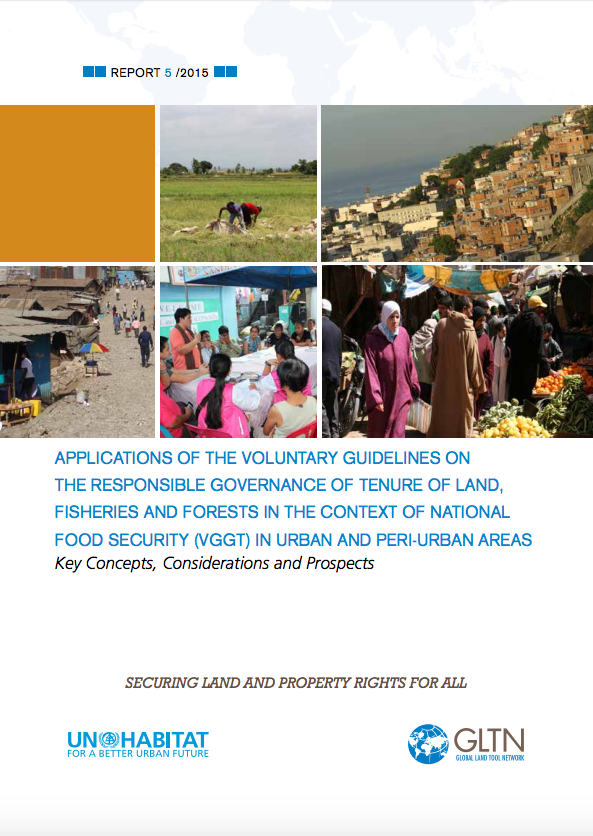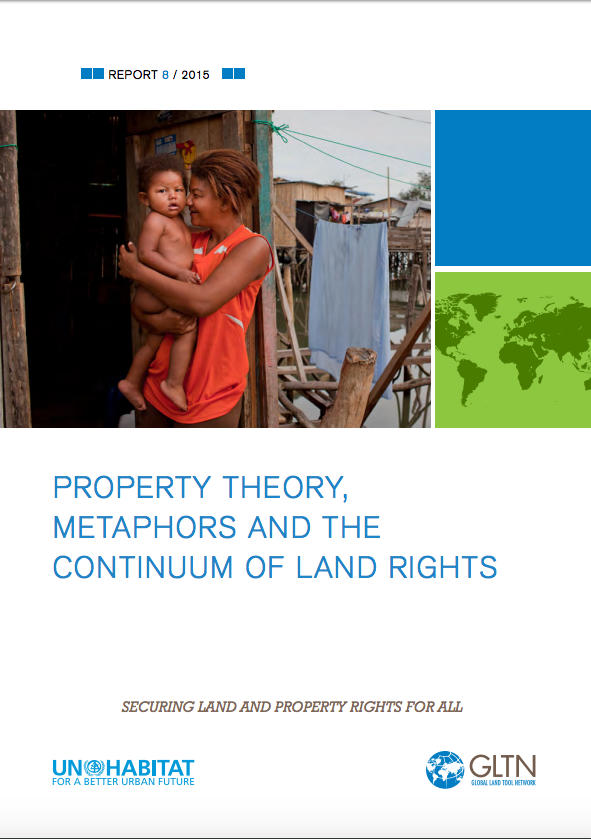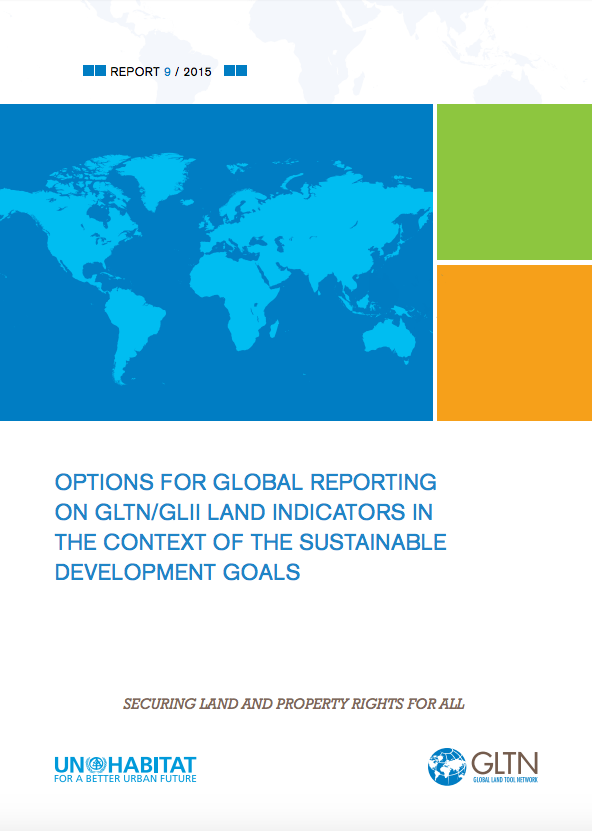Focal point
Location
The Global Land Tool Network (GLTN) is an alliance of global regional and national partners contributing to poverty alleviation through land reform, improved land management and security of tenure particularly through the development and dissemination of pro-poor and gender-sensitive land tools.
Secure land tenure and property rights are fundamental to shelter and livelihoods as well as the realisation of human rights, poverty reduction,economic prosperity and sustainable development.
The Global Land Tool Network (GLTN) main objective therefore is to contribute to poverty alleviation and the Millennium Development Goals through land reform, improved land management and security of tenure.
UN-Habitat through GLTN continues to work towards this with partners who include international civil society organizations, international finance institutions, international research and training institutions, donors and professional bodies.
Most developing countries use conventional land administration systems which cover less than 30 per cent of the country, leaving up to 70 per cent of citizens looking to informal and/ or customary approaches for their tenure security.
While there are many examples of good land policies, there are few policies that have been fully implemented due to lack of pro-poor, gendersensitive and largescale land tools. Further, conventional land titling approaches have largely failed to deliver their expected results since existing technical solutions are too expensive, inappropriate for the range of tenure found in developing countries, unsustainable financially or in terms of available capacity, and instead a range of land tenure options is more appropriate.
Core Values
Consequently, GLTN's core values and principles are founded in the development of land tools that are:
- Pro poor;
- Equitable;
- Sustainable;
- Affordable;
- Systematically large scale /scalable; and,
- Gender-sensitive, while taking into consideration:
- Good governance;
- Subsidiarity; and,
- The Continuum of Land Rights.
GLTN Objectives and Mandate
GLTN has developed a global partnership on land issues pulling together global partners, as well as many individual members. These partners include international networks of civil society, International Finance Institutions, international research and training institutions, donors and professional bodies. It continues to take a more holistic approach to land issues by working towards the following objectives:
- The establishment of a continuum of land rights, rather than just focus on individual land titling
- Improving and developing pro-poor land management, as well as land tenure tools
- Unblocking existing initiatives Assisting in strengthening existing land networks
- Supporting in the development of gendered land tools which are affordable and useful to grassroots
- Improving the general dissemination of knowledge about how to improve security of tenure
- Improving the general knowledge dissemination on the improvement of security of tenure
Resources
Displaying 206 - 210 of 286Land Tenure in Asia and The Pacific: Challenges,Opportunities and Way Forward
This publication provides an overview of the findings of a review of land tenure security in Asia and the Pacific region in collaboration with key partners. It highlights the major land challenges, barriers and opportunities as the basis for future decisions about partnerships and engagement in the land sector at sub-regional and country level. The findings are based on an extensive literature review, interviews, a questionnaire, validation at several multi-stakeholder meetings and peer review.
How Responsive is your Land Programme to the needs of Youth?
This publication is a practical guide to the Youth and Land Responsiveness Criteria, which is a tool that can be used to increase the incorporation of youth perspectives into land matters at both institutional and programme levels, through a participatory process.
Applications of the Voluntary Guidelines on the Responsible Governance of Tenure of Land,Fisheries and Forests in the Context of NationalFood Security (VGGT) in Urban and Peri-Urban Areas
This study aims to assess the applicability of the Voluntary Guidelines on the Responsible Governance of Tenure of Land, Fisheries and Forest in the Context of National Food Security (VGGT) in urban and peri-urban areas. The study also aims to facilitate decision-making on the next steps needed to ensure the application of the VGGT in urban and peri-urban areas, including informing the implementers on how they can anchor the VGGT in their activities, i.e. to apply or use the VGGT in their work in urban and peri-urban areas.
Property Theory, Metaphors and the Continuum of Land Rights
The following recommendations are made in this report:
1. The continuum of land rights is a metaphor, not a theory. A metaphor can be applied in a number of theoretical contexts, whereas a theory has an ideological perspective.
Options for Global Reporting on GLTN/GLII Land Indicators in the Context of Sustainable Development Goals
The Feasibility Study is designed to provide a business case with respect to the feasibility of data collection for global land indicators. It gives a concrete analysis of the possibility of having land indicators in the post-2015 framework that are relevant, disaggregated by gender and include outcome indicators going beyond the legal framework. This report demonstrates that it is feasible to collect the data required using available methodologies and data sources, and that countries are able to produce these data regularly and at a reasonable cost.









